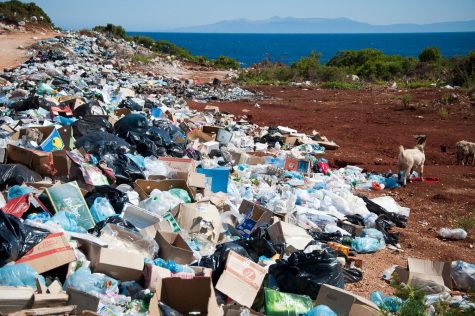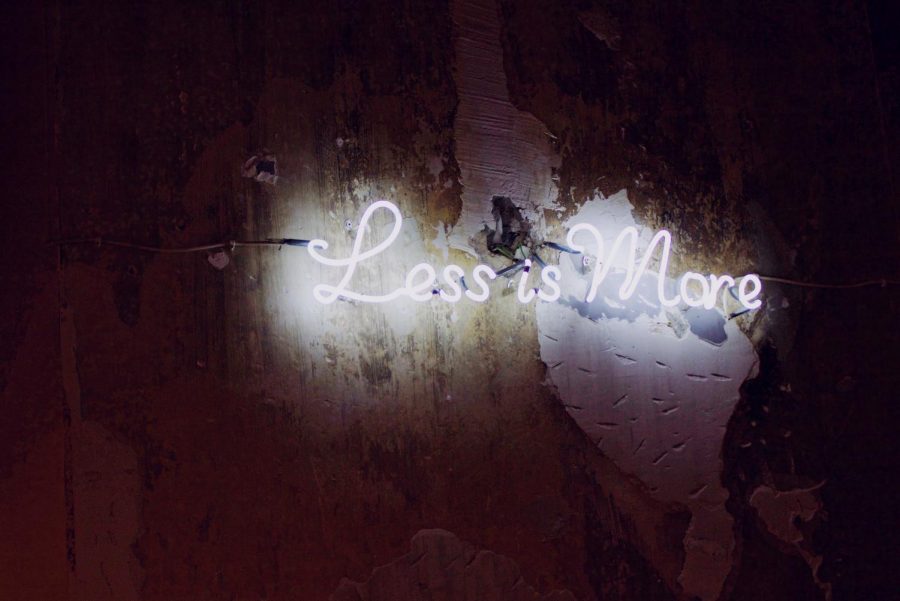Minimalism is Key to Saving the Environment
American consumerism is drastically damaging the environment. Fixing it starts in your home.
November 5, 2020
Hoarders, a hit A&E network reality show, focuses on people who buy too much. For eleven long seasons, the series has highlighted a harsh reality in American society: people have too much stuff. If a person cannot walk from their living room to their kitchen without stepping over or under their possessions, they are clearly lacking a sense of intention in their choices and overall lives. However, everyone in our society has the potential to be an intentional person who makes their decisions with a certain purpose in mind. Someone who remembers and applies their values whenever they make choices.
It is time to prioritize a particular intention that is sorely lacking in our society: environmental awareness. How can you live with the purpose to be environmentally aware? It all starts with putting an end to America’s most classic custom: consumerism.

Consumerism, specifically of material wealth, has become a standardized and celebrated part of American culture. According to an article in the Los Angeles Times, “The average U.S. household holds 300,000 things, from paper clips to ironing boards.” If you live in a family with four people, that means you could each hold roughly 75,000 items. The main issue with owning this many things is the impact it has on the earth. When you buy something, it has “lived” a whole life before you. The resources used to create the object have been grown, harvested, processed, transported, and marketed. Every step of this process contributes to environmental pollution. Harvesting resources damages soil, manufacturing products burns fossil fuels, transporting items creates significant air pollution, and marketing relies on paper, electronic, and plastic waste. American people own more than they are even aware of. Americans consume too much, and in the process create unnecessary amounts of waste.
Inspiring social change towards less consumerism requires a shift of thought and lifestyle. In order to consume less, one must change their way of thinking to be minimalist. Sarah Therese, a popular minimalist videographer explains, a minimalist is just someone who commits to “living with less, consuming with less, and using what I have more.” You must be more intentional about what you consume and be content to live with less in order to lead an environmentally conscious life. If you prioritize the earth whenever you make choices, the minimalist lifestyle is not that hard. I know from experience that going from an average consumer to a complete minimalist starts with small changes, like replacing plastic straws with a reusable one. Once I started living more sustainably, I naturally consumed less. I intended to be environmentally aware when I bought anything, which limited my options and therefore my waste.

People argue that reducing consumerism may change the economy, but the Earth is more valuable than any finance or stock. Many also say that we have bigger problems than consumerism, and they are right. Issues such as the current pandemic deserve immediate attention. However, addressing consumerism is more significant than it may appear. By asking people to buy less, we can make an unimaginable impact on the environment. Due to American consumerism, this country alone accounts for 13.2 % of all municipal solid waste, even though we only make up 5% of the world population. We produce much more than twice as much waste as we should to be eco-friendly. Consumerism is urgent and its solution should be prioritized.
Climate change is already changing our planet for the worse. Thus, we must develop habits that support environmental sustainability. By consuming less and thinking more about what we bring in and out of our lives, we are paving the way for people in the future to do the same.

